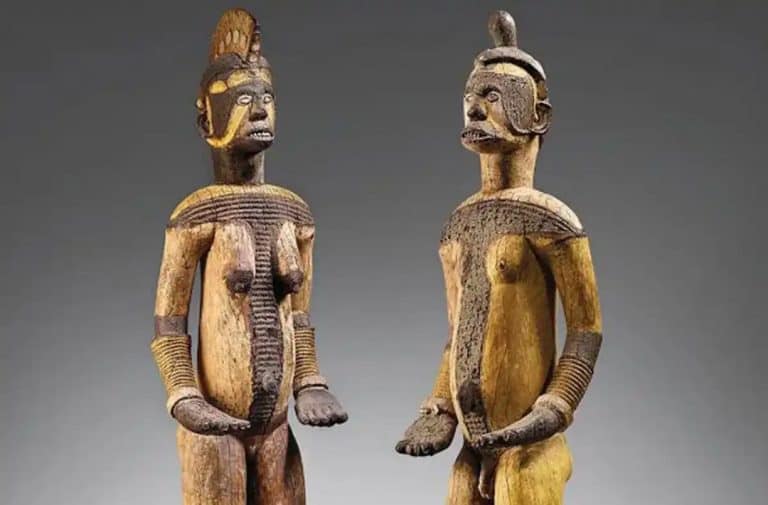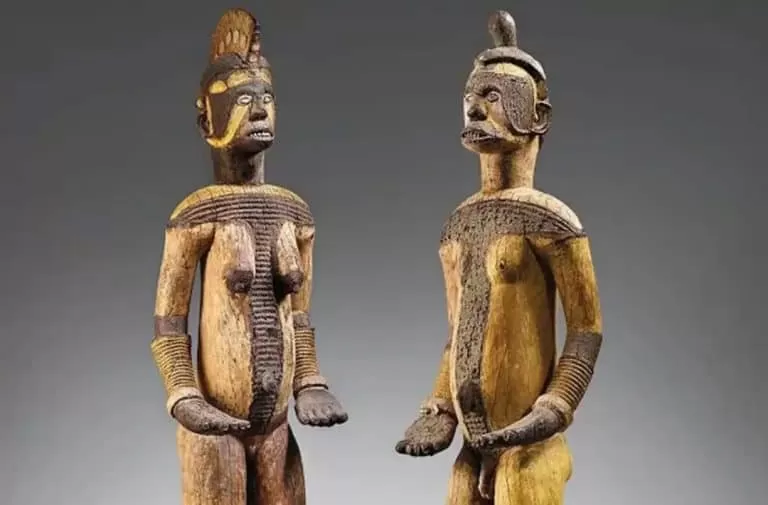

Last updated on September 11th, 2021 at 02:39 pm
A prominent Igbo-Nigerian artist and academic has called for the cancellation of a forthcoming auction in Paris of two sacred sculptures taken out of Nigeria during its devastating civil war in the late 1960s.
Chika Okeke-Agulu, a professor of art history at Princeton University, said the sale of the Igbo objects – called alusi or “sacred sculptures” – at Christie’s auction house would “perpetuate the violence” of the conflict.
Similar sculptures that adorned Igbo shrines in Okeke-Agulu’s hometown and across south-east Nigeria were taken during the failed push for an independent state of Biafra. Up to 3 million people died, many from starvation, during the conflict, one of the darkest chapters in modern history.
“The original acquisition was rooted in violence,” Okeke-Agulu said in an interview. “These objects are from my hometown, removed from places around eastern Nigeria during that war. What we’re seeing now is the continuing benefit from that original act of violence, which is an extension of that violence.”
The sculptures, which have an estimated sale price of between €250,000 and €350,0000 (£227,000-£317,000), were acquired from Nigeria by the prolific French art collector Jacques Kerchache.
(Africanbusinesscentral)
MultiChoice and NBCUniversal have given $145 million to support Showmax Africa. This money will help with running the business and…
The ongoing search for Free State police officers in Centurion resulted in the discovery of five dead bodies found in…
The Sistine Chapel will welcome Cardinal members in the forthcoming week to start electing succession candidates on May 7 for…
Namibia’s President, Netumbo Nandi-Ndaitwah, has removed Agriculture Minister Mac-Albert Hengari from his position. The decision came after serious allegations of…
Manchester United manager Ruben Amorim has confirmed that defender Diogo Dalot might miss the rest of the season due to…
Tanzanian President Samia Suluhu Hassan has praised Simba SC after the team made history by reaching the final of the…
This website uses cookies.